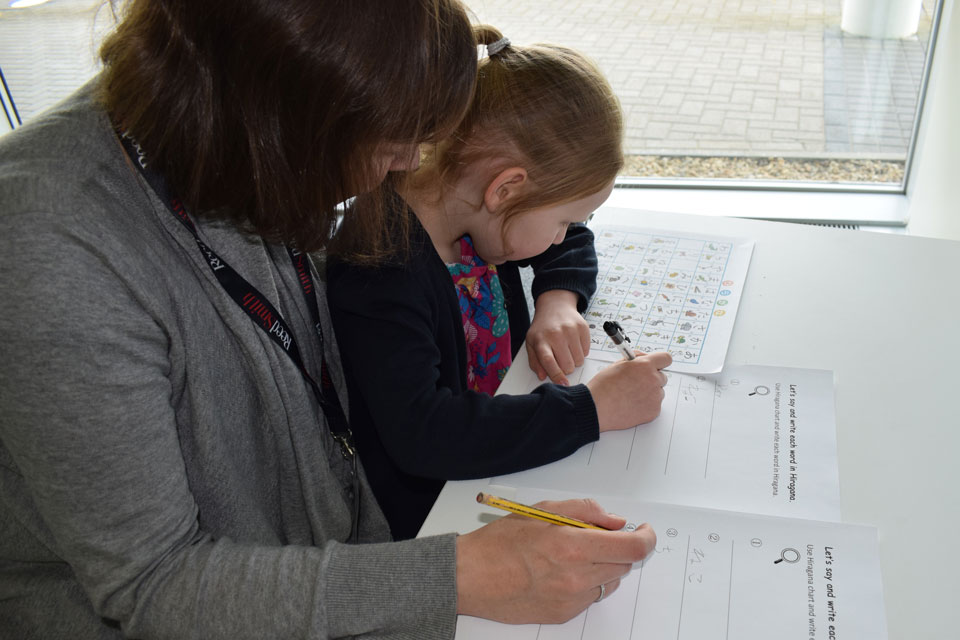Michael is running a vPlus Parent Workshop on Home Education on Wednesday 27th May 8-9pm. To find out more about the workshop visit:vPlus Parents – Home Education Workshop
“The best place for youngsters to learn is in school.” That, ladies and gentlemen, is the official view of the Secretary of State for Education, Gavin Williamson, speaking during a recent interview in the Daily Mail[1] where he discussed reopening schools after lockdown.
It was ever thus. Successive governments have treated home education as the preserve of the religious fundamentalist or the hippy. The media, taking a, not unexpected, “scandal sells” approach, have poured petrol on the flames by carrying a steady stream of stories about (variously) children being ‘lost to the system,’ or schools having to ‘pick up the pieces where home education has failed,’ or a need to ‘get children back into education.’ Ask 100 people – in a Family Fortunes style – what home education means to them and 99 of them will say Captain Fantastic. Home education, to be frank, hasn’t had the best press.
Add to that the fact that because of school closures we’ve all now been forced to take on a role we didn’t expect, a responsibility we don’t feel we’re ready for, and all while having to cope with a global pandemic and lockdown, and it’s no surprise that some of us have been struggling of late.
Despite all that, some of you will be thinking about continuing to home educate after lockdown ends and schools reopen. Others will be aghast at the idea. Either way, allow me to explain how it’s actually meant to work – because, take heart: it’s not meant to be like this.
The law on home education (or at least this aspect of it – see later for a discussion about local authorities) is quite clear. As Potential Plus UK’s own advice sheet on the matter says, the position in England and Wales can best be summed up by the phrase “education is compulsory, schooling is not.” Section 7 of the Education Act 1996 requires the parents of any school age child to ensure that their child receives ‘efficient’ full-time education suitable for
- their age, ability and aptitude, and
- any special educational needs they might have
either by ‘regular attendance at school or otherwise’. Home education is covered by the ‘otherwise’ (and that’s what lends it name to the excellent Education Otherwise website, which covers more or less anything you might need to know about home education).
In other words, every parent has the right to choose not to send their child into the state schooling system.
Why do parents choose not to? A myriad of reasons: a lack of challenge in school, a lack of support for any special educational needs, anxiety on the part of the child, bullying. Perhaps one or both parents have a job that requires them to constantly move from one part of the world to another. Perhaps the family has moral or religious reasons. Perhaps the child simply learns best in a less structured environment. In any case, section 7 doesn’t require a reason; if parents want to home educate, they can.
Going from a school to a home environment is daunting, as many of us will now attest. Most of us will have passed through the very same system that our children are now in, and we continue to live in a society that treats formal, school based education as the norm (and, conversely, anything different to that as, well, suspect). So it’s no wonder that many of us, when we first start on our home education journey, try to replicate the formal structure of that very system. We all have a tendency to trust what’s come before, and to think that because something has been done a certain way for many years it must therefore be the only – or correct – way to do it. In fact, it’s that belief in the tradition of education that is the biggest barrier to successfully home educating.
Why is that? Well, because, despite us having a more or less fixed notion of what education is, home education takes all sorts of different forms. It’s a spectrum: at one end, formal teaching, following the National Curriculum, exams, formal progression; at the other end, unschooling, where children direct their own learning, at their own pace, without any rigid structures at all. Understanding that there is an almost endless set of possible ways to educate our children – and acknowledging that they are all valid – is the hardest step; but it’s a necessary one.
Precisely where we eventually fall on that spectrum depends on all sorts of factors, the most important being the child. It’s almost trite to say it, but every child is different. Some prefer more structure, some less. Some prefer direction, some prefer to be left alone to do their own thing. Some benefit from a more disciplined approach, some rebel against that. Again, after a lifetime of accepting that (in general) state education teaches to the group rather than the individual, it’s a hard thing to accept that your child may thrive by doing something different.
Home education involves a great deal of trust. In particular, trust in your child. One of the things that I found hardest to get my head around, when my wife and I first started home educating our daughter, was that she would appear to learn about all manner of things without her having been taught any of it[2]. We instinctively know that, of course; it’s why we describe very small children as sponges, soaking up information about the world around them. But for some reason we allow ourselves to become convinced that this innate ability fades with age, and that once children reach school age, the only way that they can learn anything is by being taught it. My own daughter, at least, would attest to that definitely not being the case.
Other factors that determine how (or even if) to home educate are ones that impact on parents. The most obvious is the need for one or both parents (a particular issue in the case of single parent families) to work either part or full time, which has an impact on how much time the parent or parents are able to devote to teaching in the more traditional sense. Other factors could include income (home education can be expensive; it’s worth noting that local authorities are under no obligation to offer assistance, financial or otherwise, and exams aren’t cheap), space (is there somewhere the child can learn?) and access to technology (the internet does make it much easier to access resources and support), all matters that will affect both how easy it might be to home educate as well as the type of home education that might work best.
A word about external factors. Friends and family can be a huge source of support with home education. Practically, they can lend a helping hand, they are a source of knowledge and experience, and emotionally they can prop you up when you need it. But they can also make the process harder if they don’t agree with your decision. More than one home educating friend of ours has had cause to complain about acerbic comments from their own parents or about having fallen out with friends. Occasionally you may meet quizzical glances and pointed questions when out and about (”Oh, you’re not at school today, then? Why’s that?”). Local authorities can range from supportive (those with dedicated home education teams, who in general will try to offer resources and other assistance) to hostile (those who consider home education to come under the auspices of the truancy team and the education welfare officer).
Local authorities are a whole other issue. Most families will have begun their home education journey by removing their child from school. The school will then have had a duty to inform the local authority, and more often than not the local authority will then contact the parents. For many, first contact comes from the local authority’s education welfare officer. EWOs frequently appear to have received little training on what home education involves (their remit is very different), and as a result will often make inaccurate or misleading statements about what the family should or should not do, and sometimes will try to prevent deregistration from taking place at all. It’s no wonder then that parents view local authorities with some suspicion.
Some home educating families welcome involvement from their local authority (particularly supportive ones), but many home educating families are fiercely independent and prefer to hold local authorities at a distance. The law is far from simple. Local authorities have an obligation to identify children who are not receiving a suitable[3] education (s436A of the Education Act 1996) and an obligation to intervene “if it appears” that they’ve found one (s437). However, Local authorities have no statutory duties to routinely monitor the quality of home education, and cannot insist on home visits or any other kind of inspection. The fact that a child is home educated is not sufficient evidence, in and of itself, that the child is not receiving a suitable education, nor that there are any safeguarding issues. There are of course a number of very good resources on this; the best place to start is the Education Otherwise website.
Finally, it’s worth making one last – if important – point: this is not a normal time for home educators. A great deal of ‘home’ education in fact doesn’t take place in the home at all, but instead involves museums, art galleries, libraries and parks and taking part in groups and activities. All of that is now closed, which gives the sort of home education we’re all currently experiencing an air of institutionalism that it doesn’t normally have. Home education is more than just replicating school while sat at your kitchen table. Home education is an opportunity to rediscover the joy of learning, to turn your child’s education into a family (and community) endeavour, and to begin to understand the interconnectedness of the world around us. Which all sounds very hippy-like, so Gavin Williamson would be happy.
I’m frequently on the Parenting High Potential Facebook group, so feel free to contact me on there or I’m happy to answer emails at michael.speranza@potentialplusuk.org.
[1] The link actually takes you to a Yorkshire Live story about the Daily Hail interview; I couldn’t bring myself to link directly to the Daily Fail I’m afraid, I’d prefer not to give them any additional clicks.
[2] For a good explanation of this, it’s worth spending a little bit of your time listening to Sugata Mitra’s 2010 TED Talk, where he explains his ‘hole in the wall’ experiments.
[3] That is, suitable to their age, ability and aptitude and to any special educational needs they might have.
About the author: Michael Speranza is a trustee for Potential Plus UK. He is a senior finance lawyer with more that 20 years’ experience. He is currently working freelance as a senior consultant solicitor and working with several different legal firms. He and his wife have home educated their daughter since she was eight years old.






